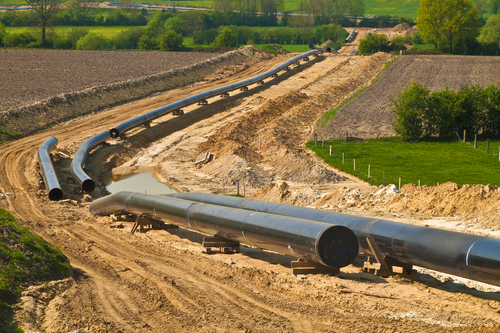
Following an announcement made earlier this week regarding the cancellation of New York’s Constitution Pipeline Project, Pennsylvania Chamber of Business and Industry President and CEO Gene Barr expressed disappointment in the decision.
The nearly $1 billion pipeline project was designed to take natural gas from Pennsylvania’s shale gas fields to New York and New England. It was initially proposed in 2013 at a projected cost of under $700 million. However, delays and legal challenges drove the costs up by nearly 40 percent. The statement to halt investment in the proposed Constitution Pipeline was released by the project’s four partners, The Williams Companies, Cabot Oil and Gas, Alta Gas, and Duke Energy.
Barr specifically said he was disheartened by the choice to halt the project, which he believes is a direct result of New York’s “repeated and deliberate obstruction to infrastructure development.”
“This project, had it been built, would have delivered domestic energy to markets in southern New York state that are sorely lacking affordable supplies of natural gas – in part because Gov. Cuomo has also prevented mineral rights holders in that region from developing their resources,” he said. “This, combined with the Delaware River Basin Commission’s move to bar natural gas development throughout the entire watershed, has resulted in the state of New York attempting to enact a policy of ‘not in my backyard, and not in yours either’ – to the detriment of workers, ratepayers, businesses and industry throughout Pennsylvania and the region.”
The partner statement announcing the termination of the project stated that while the Constitution Pipeline project received positive outcomes in recent court proceedings and permit applications, the underlying economic risk associated with such a greenfield project has changed enough that investment in further development is no longer justified.
The companies also stated they are still working in the best interest of U.S. natural gas needs and that their existing pipeline network and expansions ultimately offer much better risk-adjusted return than greenfield opportunities. Those opportunities, they said, can be impacted by an ambiguous and vulnerable regulatory framework.
“These types of short-sighted decisions will have a lasting economic impact and will also lead to continued reliance on international energy resources – specifically natural gas from Russia – for the states that are not able to access the abundant domestic resources available,” Barr said.